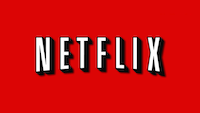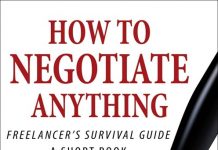 Techdirt has put up a great piece about what they are calling the ‘permission culture’ problem. They are referring to the difficulties of a business model such as Netflix, which has moved from distributing physical goods to distributing streaming digital ones:
Techdirt has put up a great piece about what they are calling the ‘permission culture’ problem. They are referring to the difficulties of a business model such as Netflix, which has moved from distributing physical goods to distributing streaming digital ones:
“The problem is that, unlike earlier movie-rental options, streaming rights fall fundamentally within a permission culture. Netflix is a great illustration of what’s gone wrong here. It’s gone from having a nearly unrivaled catalog of films available to rent to being the butt of Onion jokes. What happened: It shifted from a system where nobody had a veto power over its operations, to one where it had to get permission and make deals with Hollywood.”
It’s a great point, and I really like the term ‘permission culture’ to describe what’s going on here. But there is a flip side to this argument that I have not seen anybody make yet, and it’s this: simultaneous with this shift on how the business model works, there has been a shift in customers too. And this shift is just as dangerous to Hollywood as the threat of on-demand streaming.
The threat is this: content is no longer indispensable. Think about it. There are more books out right now than you could ever read. The options, for movies and music and media of every type, have blossomed. The number of places you can get it all from has blossomed too: my public library has just signed on with Hoopla, which gives me five movies a month—for free—before I even go near Netflix. And then there is Crackle, and YouTube and all the vintage stuff on Internet Archive…and that’s all before I give Netflix my eight bucks a month. So maybe one specific movie I might enjoy isn’t up there. But enough worthwhile content is.
More and more, I am finding that cord-cutters like me are seldom looking for a specific title. Rather, we’re looking for a specific media experience—a book, a movie, whatever. So, if I want to read a book, I’ll check my public library first. If I want to watch a movie or TV show, I’ll check Netflix first. Often, I am prepared to go to a media buying experience if I can’t find something interesting—the Kindle store is stop #2 for books, the iTunes store is stop #2 for movies or TV. But usually, I can find something good, even if it isn’t something I was expecting. It’s the difference between wanting to watch ‘a movie’ vs. wanting to watch a specific one.
Yes, it is true that the ‘permission culture’ model is a new paradigm that is having a role in shaping the digital market. But inherent in this model is the implication that this content the ‘industry’ is guarding so carefully is so darned important that people will fall all over themselves to meet your terms. The bottom line is, if you won’t offer content, somebody else will. The customers in this new Maker-friendly, self-publishing, Kickstart-funded marketplace will always have something to choose from. No one person’s content is so indispensable. And I think that this reality will ultimately shape the market too and make the ‘permission culture’ old guards more willing to play fair.

































These days, the best way to figure out whether something you want to watch is available is via a metasearch engine like CanIStream.it.
But you know what? If you can’t find a given title on any of the legit services, there are streaming sites out there that will happily show it to you in its entirety. Viooz, DailyMotion, sometimes even YouTube itself. They seem to be getting a lot more brazen these days.
Much of the distinction you’re discussing lies between those with a broad definition of what entertains them and who must have the latest fad in entertainment–Game of Thrones or whatever.
* You and I are in the first group and can find what we need easily and either cheap or free. We love libraries and Youtube can entertain us for hours. Call us the broads.
The other group is trapped, captive to the gatekeepers of whatever is new and hot. Call them the fads. For them not just any book or movie will do. It has to be THE ONE that they will claim “everyone is talking about.” Everyone, by their lights, being a select group of those whose taste is like theirs.
The fuss between the DOJ and the Big Six publishers, to the extent that it was intended to do anything more than boost Amazon, was a legal frenzy fed by the fads. They’re angered that the hot new book that they must read costs what they consider to be a lot, either in print or digital. Those who don’t supply the hot cheaply are their enemies, in part because these fads they don’t have the flexibility to wait for the price to come down. It outrages their sense of The Fad to find it given a value.
That explains something that at first I thought odd. Why did Judge Denise Cote decree that those who’d bought books on the NY Times bestseller list got substantially more than those who bought books that weren’t on the list? Almost certainly that because she was among the fads. Any suggestion that publishers might be able to charge more for a book that was on The List Above All Lists infuriated her and those like her. That Must Not Be Permitted. Apple And The Big Six Must Be Punished.
Think of it as being like Martin Luther being outraged at the selling of indulgences. For those numbered among the fads, the latest is a sacred thing, not an item of commerce.
Of course, unlike Martin Luther, six months later, when the fad has died, they could care less about it. They’ll throw that book or DVD out with the trash.